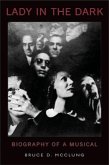Drawing upon a remarkable mix of intensive research and the personal experience of a career devoted to the music about which Dvoak so presciently spoke, Maurice Peress's lively and convincing narrative treats readers to a rare and delightful glimpse behind the scenes of the burgeoning American school of music and beyond. In Dvorak to Duke Ellington, Peress begins by recounting the music's formative years: Dvorak's three year residency as Director of the National Conservatory of Music in New York (1892-1895), and his students, in particular Will Marion Cook and Rubin Goldmark, who would in turn become the teachers of Ellington, Gershwin, and Copland. We follow Dvorak to the famed Chicago World's Fair of 1893, where he directed a concert of his music for Bohemian Honor Day. Peress brings to light the little known African American presence at the Fair: the piano professors, about-to-be-ragtimers; and the gifted young artists Paul Dunbar, Harry T. Burleigh, and Cook, who gathered at the Haitian Pavilion with its director, Frederick Douglass, to organize their own gala concert for Colored Persons Day. Peress, a distinguished conductor, is himself a part of this story; working with Duke Ellington on the Suite from Black, Brown and Beige and his "opera comique," Queenie Pie; conducting the world premiere of Leonard Bernstein's Mass; and reconstructing landmark American concerts at which George Antheil's Ballet Mecanique, George Gershwin's Rhapsody in Blue, James Reese Europe's Clef Club (the first all-black concert at Carnegie Hall), and Ellington's Black, Brown and Beige, were first presented. Concluding with an astounding look at Ellington and his music, Dvorak to Duke Ellington offers an engrossing, elegant portrait of the Dvorak legacy, America's music, and the inestimable African-American influence upon it.
Hinweis: Dieser Artikel kann nur an eine deutsche Lieferadresse ausgeliefert werden.
Hinweis: Dieser Artikel kann nur an eine deutsche Lieferadresse ausgeliefert werden.








